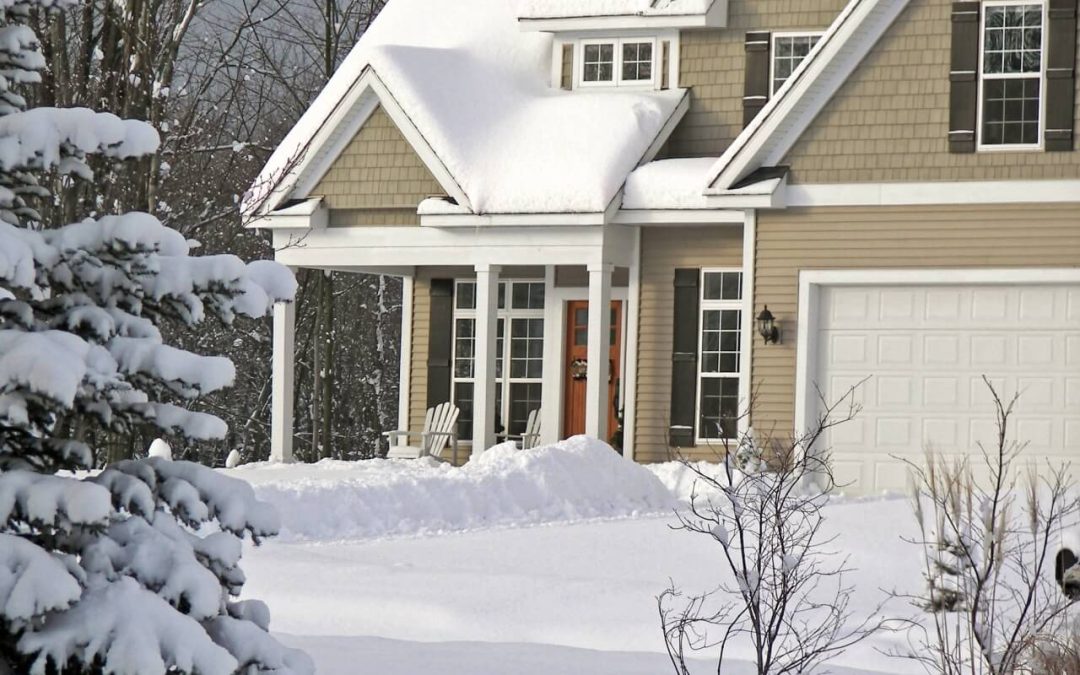Winter weather can take a toll on your home, inside and out. From frozen pipes and ice dams to dry air and drafts, there are plenty of ways your home can suffer during the colder months. With preparation, you can winterize your home and prevent many of these issues. Here are a few tips to get you started.
Ways to Winterize Your Home
Inspect the Home’s Exterior
Before the cold weather sets in, inspect your home’s exterior and address issues. Here are a few tasks to maintain the exterior of the house.
Start by checking your gutters and downspouts to make sure they are clear of leaves and debris. Clogged gutters can cause water to back up and freeze, damaging the guttering, siding, and roof.
Trim branches that overhang your roof, driveway, or gutters. These branches could break off during a winter storm and cause damage to your home.
Inspect the windows and doors to verify they have no air leaks. Drafty windows and doors let warm air out and cold air in, making it harder to heat your home and driving up energy costs. Add weatherstripping or caulking to seal the opening if you feel a draft around a window or door.
Inspect the chimney for cracks in the mortar or blocks in the flue. A professional chimney sweep can clean out the chimney and make necessary repairs.
Winterize Your Home: Prepare the Plumbing
Frozen pipes are one of the most common wintertime problems homeowners face. To prevent your pipes from freezing, start by finding the exposed pipes in your home – in the basement, attic, crawlspace, and under sinks. Insulate them with pipe sleeves or foam insulation.
On frigid days, open cabinet doors to allow heat from your home’s interior to reach exposed pipes under sinks. If the temperature drops below freezing regularly, let a trickle of water run through your faucets at night to prevent burst pipes.
Before freezing weather arrives, disconnect garden hoses and drain water from the tap.
Maintain the HVAC Equipment to Winterize Your Home
Your furnace works hard during the winter to keep your home warm; have it serviced before turning it on for the season. Hire a professional to inspect and clean the system, including the blower motor, belts, fans, pilot light assembly, and burners. The technician will ensure it’s in good working order before you need it. Set a reminder to change the furnace filter monthly during the heating season to improve indoor air quality and keep dust and dirt from circulating through your vents. Inspect the ductwork; if you see any gaps or holes, seal them with duct mastic or metal tape, so heat cannot escape.
Winter weather doesn’t have to cause problems for your house. With some preparation, you can winterize your property against common cold-weather issues. These steps allow you to stay comfortable all season without breaking the bank on energy costs.
Boston Light Home Inspections offers inspections to homebuyers and sellers in Massachusetts. Contact us to schedule our services.

